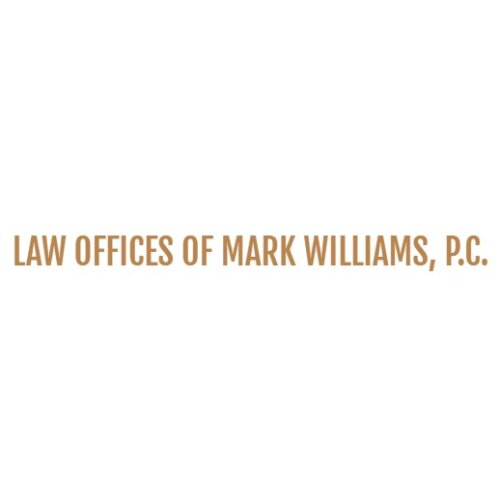Best Trusts Lawyers in Guam
Share your needs with us, get contacted by law firms.
Free. Takes 2 min.
Or refine your search by selecting a city:
List of the best lawyers in Guam
About Trusts Law in Guam
Trusts are legal arrangements where one party (the settlor) gives another party (the trustee) the right to hold assets on behalf of a third party (the beneficiary). In Guam, trusts are governed by the Trust Act of Guam, which outlines the rules and regulations surrounding the creation and management of trusts. Trusts are commonly used for estate planning, asset protection, and charitable purposes.
Why You May Need a Lawyer
You may need a lawyer specializing in trusts for various reasons, including creating a trust, interpreting trust documents, resolving trust disputes, managing trust assets, and ensuring compliance with local laws and regulations. A lawyer can provide valuable legal advice and guidance to help you navigate complex trust issues and achieve your financial goals.
Local Laws Overview
Key aspects of local laws related to trusts in Guam include requirements for creating a valid trust, duties and responsibilities of trustees, trustee compensation, trust administration, trust termination, and trust litigation. It is important to consult a lawyer familiar with Guam trust law to ensure your trust is legally sound and effectively manages your assets.
Frequently Asked Questions
1. What is a trust?
A trust is a legal arrangement where a trustee holds assets on behalf of a beneficiary, as directed by a settlor.
2. How do I create a trust in Guam?
To create a trust in Guam, you must draft a trust document outlining the terms and conditions of the trust and transfer assets to the trustee.
3. What are the duties of a trustee?
Trustees have a fiduciary duty to act in the best interests of the beneficiaries, prudently manage trust assets, and follow the terms of the trust.
4. Can a trust be contested in Guam?
Trusts can be contested in Guam through trust litigation if there are disputes over the validity or administration of the trust.
5. How are trusts taxed in Guam?
Trusts in Guam may be subject to income tax, transfer tax, and other tax implications based on the terms and structure of the trust.
6. Can I change the terms of a trust?
Depending on the terms of the trust and local laws, it may be possible to modify a trust through a trust amendment or trust restatement.
7. What happens if a trustee breaches their duties?
If a trustee breaches their duties, beneficiaries may have legal recourse to hold the trustee accountable for any damages or losses incurred.
8. Can I serve as a trustee and a beneficiary of a trust?
It is possible to serve as both a trustee and a beneficiary of a trust in Guam, but it is important to avoid conflicts of interest and ensure compliance with trust laws.
9. Do I need a lawyer to create a trust?
While it is possible to create a trust without a lawyer, consulting with a trust attorney can help ensure your trust is legally sound and effectively achieves your intended goals.
10. How do I terminate a trust in Guam?
Trusts in Guam can be terminated by following the termination provisions outlined in the trust document or through court action if necessary.
Additional Resources
For more information on trusts in Guam, you may consider contacting the Guam Bar Association or the Department of Revenue and Taxation for guidance on trust-related matters.
Next Steps
If you need legal assistance with trusts in Guam, consider reaching out to a local trust attorney who can provide personalized advice and guidance tailored to your specific trust needs. Consulting with a lawyer can help you navigate the complexities of trust law and protect your assets for future generations.
Lawzana helps you find the best lawyers and law firms in Guam through a curated and pre-screened list of qualified legal professionals. Our platform offers rankings and detailed profiles of attorneys and law firms, allowing you to compare based on practice areas, including Trusts, experience, and client feedback.
Each profile includes a description of the firm's areas of practice, client reviews, team members and partners, year of establishment, spoken languages, office locations, contact information, social media presence, and any published articles or resources. Most firms on our platform speak English and are experienced in both local and international legal matters.
Get a quote from top-rated law firms in Guam — quickly, securely, and without unnecessary hassle.
Disclaimer:
The information provided on this page is for general informational purposes only and does not constitute legal advice. While we strive to ensure the accuracy and relevance of the content, legal information may change over time, and interpretations of the law can vary. You should always consult with a qualified legal professional for advice specific to your situation.
We disclaim all liability for actions taken or not taken based on the content of this page. If you believe any information is incorrect or outdated, please contact us, and we will review and update it where appropriate.
Browse trusts law firms by city in Guam
Refine your search by selecting a city.











